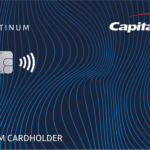What are some common causes of bad credit?
If you’ve ever applied for a loan, a credit card, or even rented an apartment, you know how important your credit score is. Your credit score is a number that reflects your credit history and how likely you are to pay back what you borrow. Having a good credit score can help you get better interest rates, lower fees, and more options when it comes to borrowing money. But what if your credit score is low? What are some of the common causes of bad credit and how can you avoid them?
Late payments
One of the most common causes of bad credit is making late payments on your bills, loans, or credit cards. Your payment history makes up 35% of your credit score, so missing a payment by even a few days can have a negative impact on your score. The more late payments you have, the worse it is for your credit. Late payments can stay on your credit report for up to seven years, so it’s important to pay your bills on time every month.
To avoid late payments, you can set up automatic payments online or use reminders to help you remember when your bills are due. You can also contact your creditors and ask for a payment plan or a hardship program if you’re having trouble making ends meet.
High credit utilization
Another common cause of bad credit is having a high credit utilization ratio. This is the percentage of your available credit that you’re using at any given time. For example, if you have a credit card with a $1,000 limit and you owe $500 on it, your credit utilization ratio is 50%. The lower your ratio, the better for your credit score. A high ratio indicates that you’re relying too much on borrowed money and may have trouble paying it back.
To lower your credit utilization ratio, you can pay down your credit card balances as much as possible and avoid using them for unnecessary purchases. You can also ask for a credit limit increase or open a new credit card account, but only if you can manage them responsibly.
Bankruptcy
Bankruptcy is a legal process that allows you to discharge some or all of your debts if you can’t afford to pay them back. However, bankruptcy is not a quick fix for bad credit. It can severely damage your credit score and stay on your credit report for up to 10 years. Bankruptcy can also make it harder for you to get approved for new loans or credit cards in the future.
Bankruptcy should be considered as a last resort when you have no other options to deal with your debt. Before filing for bankruptcy, you should consult with a financial counselor or an attorney to explore other alternatives, such as debt consolidation, debt settlement, or debt management.
Charge-offs
A charge-off is when a creditor gives up on trying to collect a debt from you and writes it off as a loss. A charge-off usually happens after several months of missed payments and attempts to contact you. A charge-off can hurt your credit score and stay on your credit report for up to seven years. It can also make it harder for you to get new credit or negotiate with your creditors.
To prevent charge-offs, you should try to pay at least the minimum amount due on your accounts every month and communicate with your creditors if you’re facing financial difficulties. If you already have charge-offs on your credit report, you may be able to remove them by paying them off in full or settling them for less than the full amount.
Identity theft
Identity theft is when someone uses your personal information, such as your name, Social Security number, or credit card number, to open accounts or make purchases in your name without your permission. Identity theft can ruin your credit score and cause you a lot of stress and hassle. You may not even be aware that someone has stolen your identity until you notice suspicious charges on your statements or errors on your credit report.
To protect yourself from identity theft, you should monitor your accounts and statements regularly and check your credit report at least once a year for any signs of fraud. You should also shred any documents that contain sensitive information and use strong passwords and security software online. If you suspect that someone has stolen your identity, you should report it to the authorities and the credit bureaus as soon as possible.
Sources:
– Bad Credit: Definition, Examples, and How to Improve – Investopedia
https://www.investopedia.com/terms/b/bad-credit.asp
– Bad Credit Causes – Definition, Impact, How to Improve – Corporate Finance Institute
https://corporatefinanceinstitute.com/resources/commercial-lending/bad-credit-causes/
– What are the causes of a bad credit rating | Barclaycard
https://www.barclaycard.co.uk/personal/money-matters/credit-score-basics/what-are-the-causes-of-a-bad-credit-rating
– Bad Credit Causes – Overview, List of Main Causes – Wall Street Oasis
https://www.wallstreetoasis.com/resources/skills/credit/bad-credit-causes




